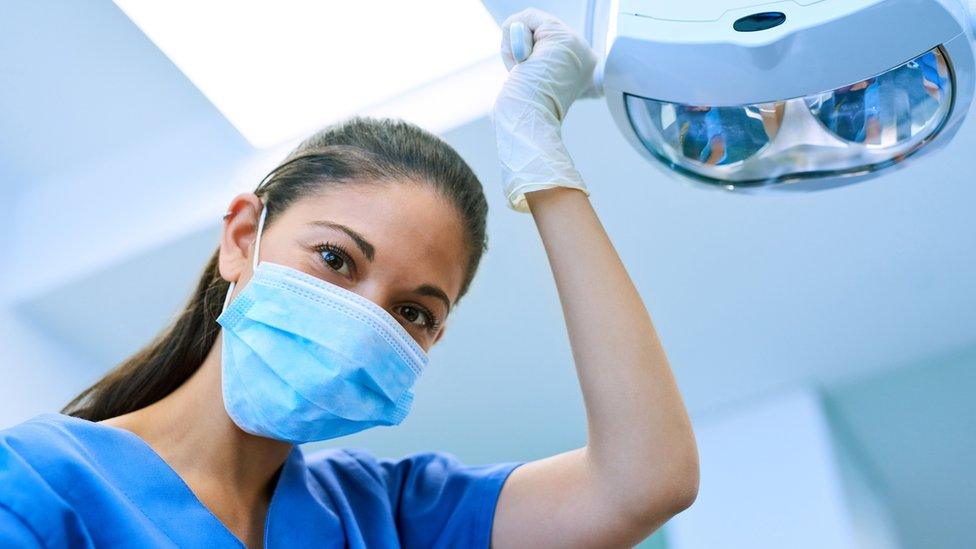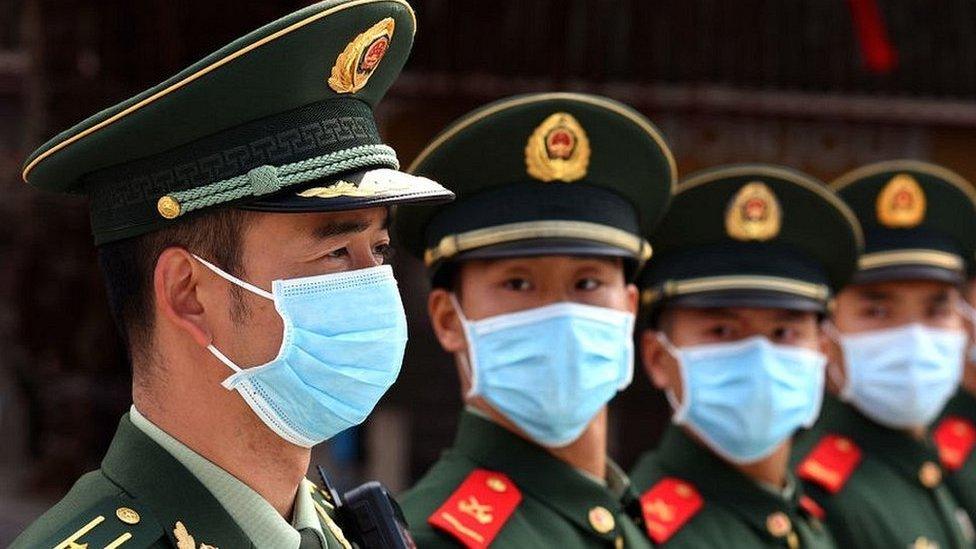Dentists threatened by coronavirus face-mask shortage
- Published
- comments

Some UK dentists may have to "down drills" if the shortage of face masks caused by the coronavirus outbreak continues, according to the British Dental Association.
All practices are now restricted to ordering 100 masks a day, leaving larger ones with several dentists running out of supplies.
Even small surgeries are using up their allocation completely, the BDA says.
Ministers said central stockpiles of face masks were available.
The dentists' trade union says it has been inundated with calls from members about the shortage of masks.
Current guidance means dentists across the UK must wear disposable face masks when treating patients.
But China is the world's major manufacturer and prices have tripled since January, when the new coronavirus started circulating in the country.
And the BDA says supply problems and panic-buying have taken their toll.

Police, as well as civilians, have been wearing face masks across China because of the coronavirus outbreak
Its chairman, Mick Armstrong, said dentists had been hit by "clumsy rationing and naked profiteering" in recent weeks.
"Sadly a 'one size fits all' approach from suppliers is leaving many larger practices with few options," he said.
"Our abiding interest is the safety of our patients, who face imminent disruption to their care.
"Unless we see a rapid increase in supply, dentists without face masks will have little choice but to down drills."
A typical NHS surgery with one dentist can get through 250 masks a week - but larger surgeries with more dentists would run out completely under the current restrictions.
The BDA said it had been contacted by concerned dental practices, some of whom had up to 13 dentists.
It said dentists would be running out of masks as early as next week.
The shortage is not just affecting the UK - the BDA says dentists in Australia have also expressed their concern over a lack of face masks.
A spokesman from the Department of Health and Social Care said: "We have central stockpiles of a range of medical products, including face masks, to mitigate supply problems and help ensure the uninterrupted supply to the NHS.
He added: "We have well-established procedures to deal with supply problems, regardless of the cause, and work closely with industry, the NHS and others in the supply chain to help prevent shortages and to ensure that the risks to patients are minimised."